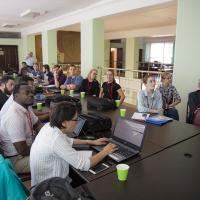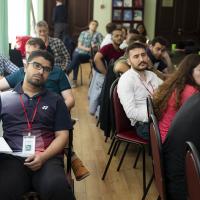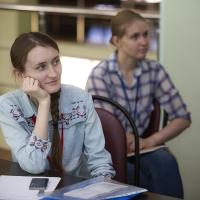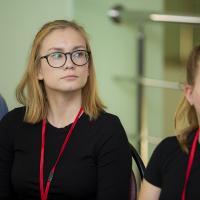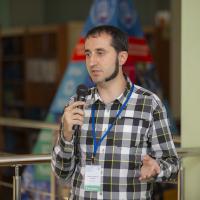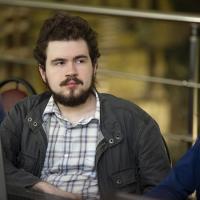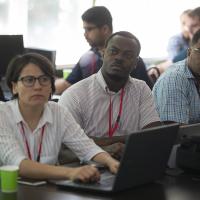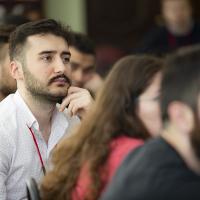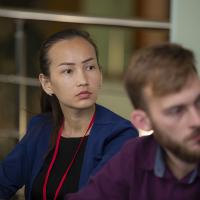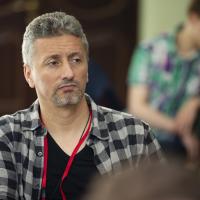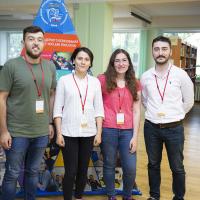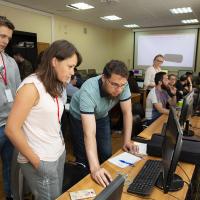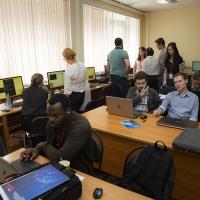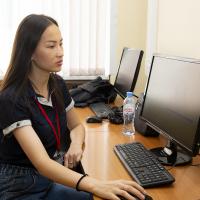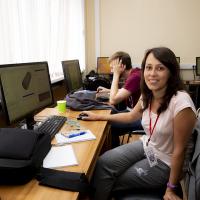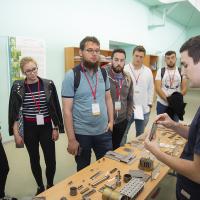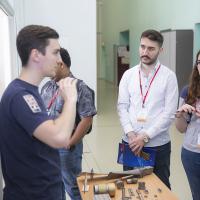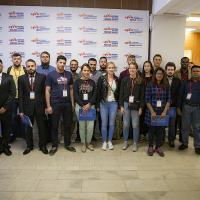On July, 13 the Third International Summer School on Engineering Computer Modeling has ended in the National Research Nuclear University MEPhI.
To knowledge through a team project
Held under the leadership of the Deputy Director of the Institute of Nuclear Physics and Engineering of MEPhI Georgy Tikhomirov, the summer school on engineering computer modeling has gathered young specialists, graduate students and undergraduates in the field of computer modeling of various physical processes as well as designers working with engineering and precision calculation codes from 12 countries: Russia, Spain, Algeria, Turkey, Egypt, Nigeria, Kazakhstan, Greece, Poland, Bangladesh and Norway. The latter was represented by two universities: Western Norway University of Applied Sciences and the University of Bergen.
“The school included lectures and practical classes. The participants learned the finite element method and the basics of hydrodynamics using programs FlowVision, CAE Fidesys and STAR-CCM+,” said Georgy Tikhomirov. According to him, students worked with group projects having an opportunity to apply their knowledge and skills in these software programs.
This year special attention was paid to team interaction. The participants were divided into four groups. They received a task on multiphysical modeling of neutron-physical and thermal-hydraulic characteristics of a fuel element of a nuclear reactor washed by the coolant. The work on the project allowed to get acquainted with the world of modern modeling, where calculations of individual elements are replaced by a complex calculation of the whole system. In addition, the experience of cooperation in an international English-speaking group helped young researchers to get new social connections for the future.
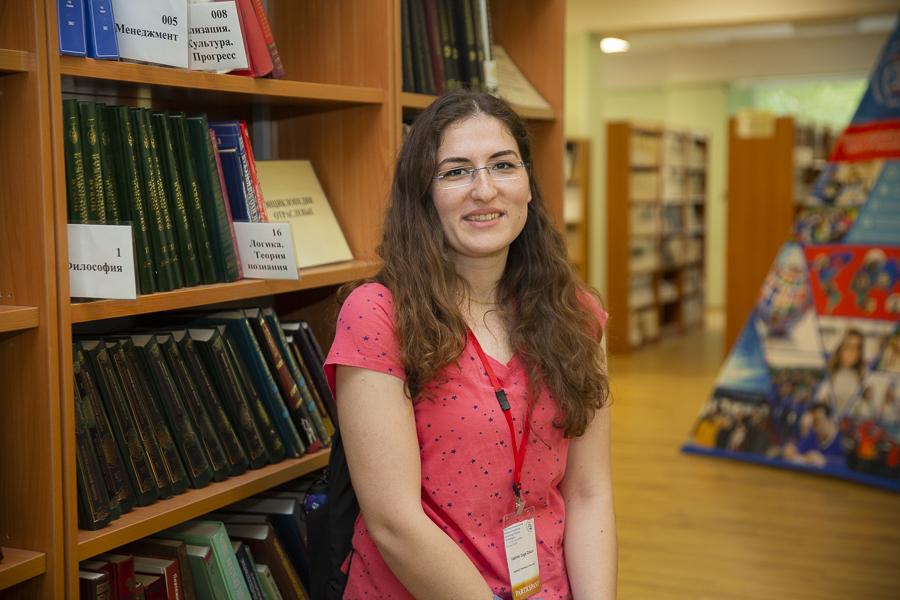
The school was attended by foreign students. A master degree student from the Istanbul Technical University Ozkan Fadime Ozge said that it was her supervisor who advised to apply for the summer school. "The question was only in the accommodation, because it is expensive for a student to rent an apartment for the period of classes," shared the girl.
The scientific supervisor sent the details of the trip, and it turned out that MEPhI would provide the place in the dormitory. "As soon as I learned about it, I immediately filed an application. Two more young people from my University also take part in the school," Ozkan said, adding that she is studying for a master's degree in "Nuclear engineering".
In Turkey there is intense competition among applicants for her specialty. "There was not enough practice at home. It is important that here attention is paid to complex topics in the field of nuclear energy. Therefore, it is a great opportunity for me and my colleagues from Istanbul to learn more useful skills, new competencies."
Earlier Ozkan had never participated in similar schools. In addition, it was a great opportunity for her to see the city, to study at one of the best universities in the nuclear field.
The capital's attractions are her weakness. “We had a tour at the University, also we were taken to the Kolomenskoye park, we were on the Red Square,” said Ozkan, specifying that they enjoyed a heartly welcome.
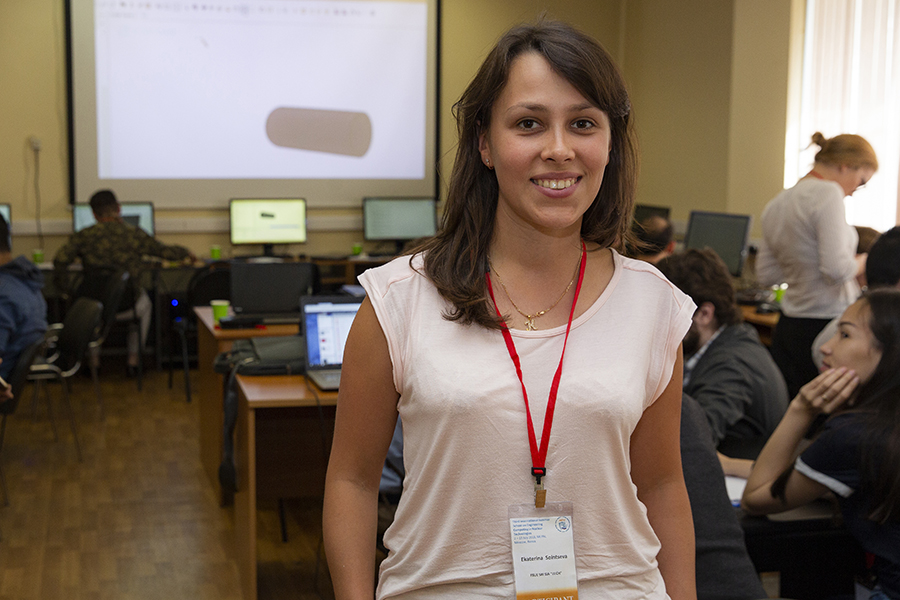
An engineer from Podolsk, the chief specialist of the Department of non-reactor and reactor tests and research of the Rresearch and production association “Luch” Ekaterina Solntseva said that she heard about the school in 2016: "However, that year I failed to be selected for participation."
Her work is to plan, organize and conduct tests of fuel elements of a nuclear reactor, as well as promising fuel and structural materials for reactor plants of the new generation. "Organizing reactor tests it is necessary to justify the safety and modes of experimental devices, in which the tested materials and model fuel elements are tested," Ekaterina explained.
According to her, the justification and support of the reactor experiment usually includes radiation, neutron-physical, thermophysical and strength calculations. According to their results, the adjustment of the modes is performed, the safety justification of the use of experimental devices is presented.
Hence, a specialist dealing with reactor and post-reactor studies should be well versed in the physical and thermal processes of the reactor. "He should be able to calculate and evaluate the expected parameters of the experimental devices," she concretized.
In her opinion, the organizers of the school and invited lecturers went to considerable lengths. “They conducted a ten-day course of neutron-physical modeling using the MCU program (Kurchatov Institute) and modeling of heat-hydraulic processes using the CFD FlowVision program," Ekaterina listed. She added that the lecturers made "almost impossible", expressing the belief that the knowledge would be absolutely useful to her work.
In addition to the official part of the busy agenda, the organizers paid attention to the leisure program outside the working space of the school. "They tried to make foreign participants feel comfortable and were able to enjoy their stay in Moscow," the researcher shared.
As a result, the participants presented the results of their work on the group project and received certificates of participation in the summer school.





